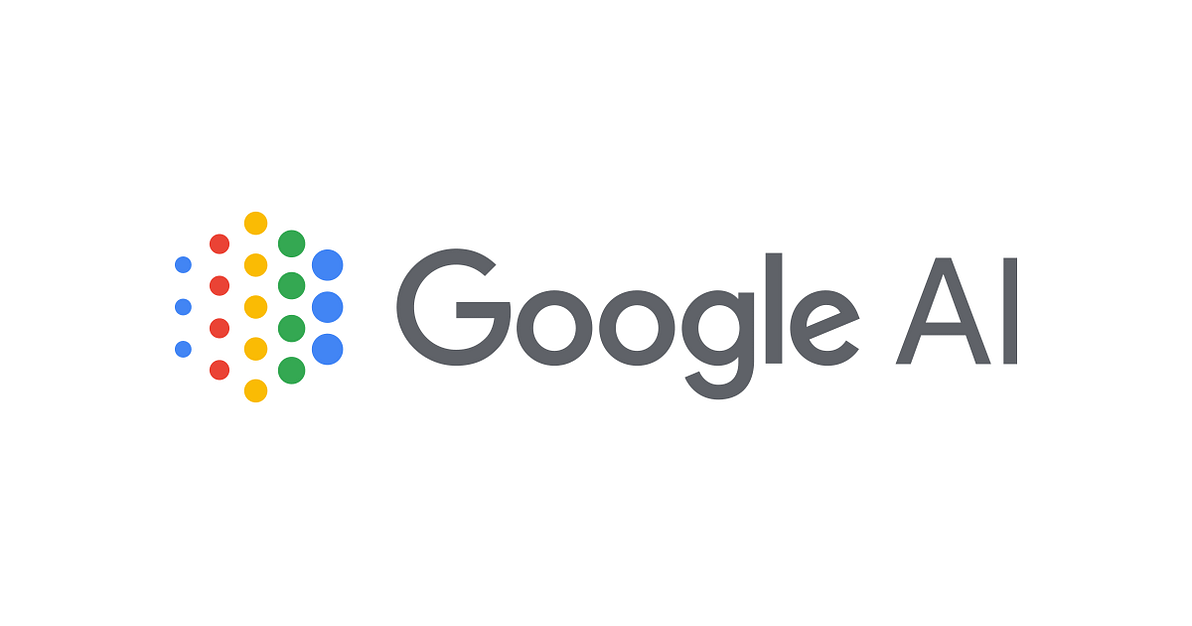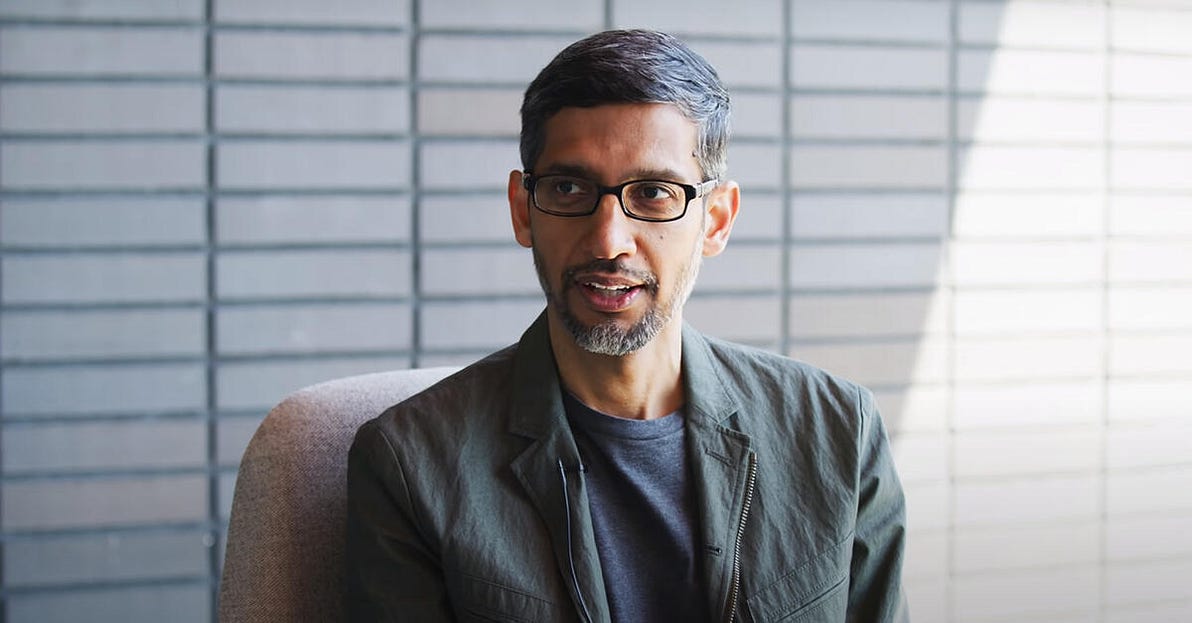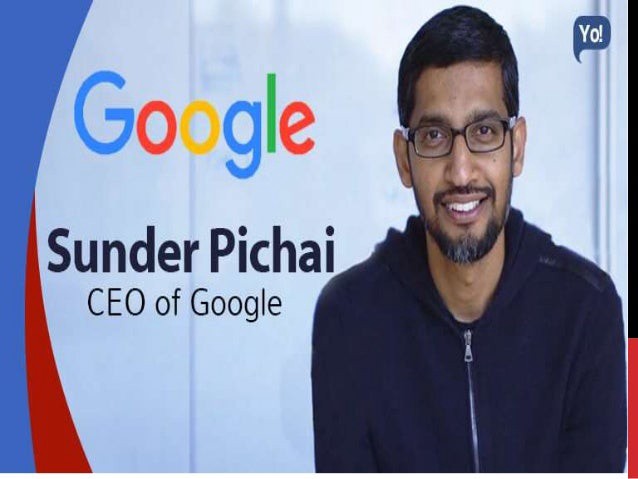Artificial intelligence “is one of the most profound technologies we are working on, as important or more than fire and electricity,”
MIT Sloan Management School
Sara Brown
Mar 17, 2022
In early March, Google announced that it was suspending ad sales in Russia, joining the movement to isolate Russia after it invaded Ukraine.
Unlike some other organizations, Google can’t walk away from the country entirely. The company is making sure YouTube and Google search — free, important sources of information — are still operating, CEO Sundar Pichai said last week.
“We will obviously align with our mission to provide high-quality information,” he said. “We have removed a lot of misinformation, including state-backed channels, globally across our products and platforms, as other companies have done.”
These efforts are likely just beginning, said Sundar, who became the CEO of Google in 2015 and its parent company, Alphabet, in 2019.
Google and Google employees have donated more than $25 million to relief efforts in Ukraine, he said.
“These are moments that unite humanity. We’ve gone through the pandemic, we’ve gone through racial equity moments … I think companies, organizations, all of us, need to step up and do the right thing.”
The crisis in Ukraine is just one global challenge that companies need to address, Pichai noted. During a wide-ranging conversation last week with MIT president L. Rafael Reif, Pichai talked about internal and external challenges, including how Google is addressing climate change; diversity, equity, and inclusion efforts; and the return to the workplace.
Pichai, who led development of the Google Chrome browser and oversaw Google Maps, Android, Gmail, and Google Apps, emphasized in his talk the role he sees technology playing in these efforts and beyond.
Here’s how Google is tapping technology to solve some of businesses’ most challenging problems:

Balancing the promise of AI with its risks
Artificial intelligence “is one of the most profound technologies we are working on, as important or more than fire and electricity,” Pichai said.
“Developing important new technology … for humankind, it’s always been about balancing the positives and the negatives and harnessing it to make sure it benefits society.
This is going to be no different. The stakes are higher.”
Artificial intelligence “is one of the most profound technologies we are working on, as important or more than fire and electricity,
Instead of developing AI and thinking about the consequences later, Google aims to think through the risks early on and invest in the right frameworks, Pichai said.
Google has created a set of AI principles that address ethics, bias, and making sure applications benefit society.
Instead of developing AI and thinking about the consequences later, Google aims to think through the risks early on and invest in the right frameworks, …
Pichai pointed to the role of academia in developing responsible AI. “I think the vantage point and the work from universities will end up being a very important perspective rather than companies being able to do this alone,” he said, adding that those institutions can also hold companies accountable.
Pichai pointed to the role of academia in developing responsible AI. “
The promise of AI cuts across all parts of the company and far beyond, Pichai said: It can be used to improve Google search, help with self-driving cars, make YouTube a better platform for education, drive innovation that could help solve climate change, or help detect diabetic retinopathy, a curable cause of blindness.
But the company has to approach this technology “always making sure we put humanity at front and center, and people and their connections with the real world,” he said. “I think that’s what will win over time.”
But the company has to approach this technology “always making sure we put humanity at front and center, and people and their connections with the real world,” ,,,
Embracing a ‘flexible’ future of work
Google has joined other companies in reconsidering where and how people work. “I want to embrace that the future of work is going to be flexible, and really internalize that,” Pichai said.
Google employees are given the chance to work from other locations, he said, and the company is leaning toward hybrid work, with roughly three days in the office and two days at home — though roughly 20% of Google’s workforce is expected to work fully remotely over time, he said.
While it is still important to have moments where people come together to collaborate and create new things, Pichai said, flexible work boosts the company’s diversity, equity, and inclusion goals by tapping talent in different locations and being flexible in different situations, such as when employees return from parental leave.
“By giving [employees] agency and giving them that flexibility and trusting them to do the right thing, I think we will end up again in a net better place where people will be happier and hence more productive,” he said.
Artificial intelligence could even play a role in fostering meaningful connections, he said. “I always think about why doesn’t Google Calendar tell me, ‘Hey, it’s a nice day outside. You haven’t walked,’” he said.
Perhaps calendars could also suggest dinner with family, or help someone find the time to learn Spanish, he added.
“By giving [employees] agency and giving them that flexibility and trusting them to do the right thing, I think we will end up again in a net better place where people will be happier and hence more productive,” he said.

Investing in diversity and equity, inside and outside the company
Pichai said it is important for Google to have a diverse workforce. “We are trying to build products used by billions of users, [and] we are working on important technologies that will have a deep impact on society,” he said. A diverse workforce will “help the company develop better products, and more importantly, tackle problems in society better.”
Google has grown in its approach to diversity, equity, and inclusion, he said, including publicizing its annual diversity report, focusing on hiring, attrition, and representation data for different groups, and making a public commitment to have 30% more of its leaders from underrepresented groups by 2025.
Thinking about diversity and inclusion extends to the company’s products, Pichai said — for example, Black-owned businesses could be highlighted on search and Google Maps.
“Above all, I think it’s about tone from the top really reflecting that commitment and driving it deep within the organization,” he said. “In my experience, people genuinely want to do better here, and so it’s tapping into that energy and driving progress.”
Google is addressing societal inequality and wealth gaps by investing in skilling and education. For example, the company launched the Google Career Certificate program — a nine-month course to help people gain digital skills. The company also supplements the training with “wraparound services” such as childcare support, interview preparation, resume workshops, job placement support, and living stipends.
“The reality is that many people don’t have access, and we need to help them make the transition to acquiring digital skills,” he said. “That’s what we are thinking about — how do you help people in the labor force get skill-based [training] and credentialing that employers value?”
Google has grown in its approach to diversity, equity, and inclusion, he said, including publicizing its annual diversity report, …and making a public commitment to have 30% more of its leaders from underrepresented groups by 2025.
Using technology to address climate change
Climate change has long been an important cause at the company, Pichai said — Google has been carbon neutral since 2007, and aims to be carbon-free by 2030. “I’m not talking offsets,” he said. “It is effectively making sure every video you watch on YouTube or every Gmail or every search query you type, that we don’t touch carbon sources of energy in the process.”
To do this, Google is looking at and investing in technology like carbon capture, and has partnered with MIT startup Commonwealth Fusion Systems to research fusion energy.
Climate change will disproportionately affect disadvantaged communities, Pichai noted. “So using technology to tackle climate change is one of the best ways by which we can tackle inequality.”
Climate change will disproportionately affect disadvantaged communities, … “So using technology to tackle climate change is one of the best ways by which we can tackle inequality.”
Originally published at https://mitsloan.mit.edu on April 6, 2022.
Names mentioned
Google’s, Sundar Pichai
MIT president L. Rafael Reif












